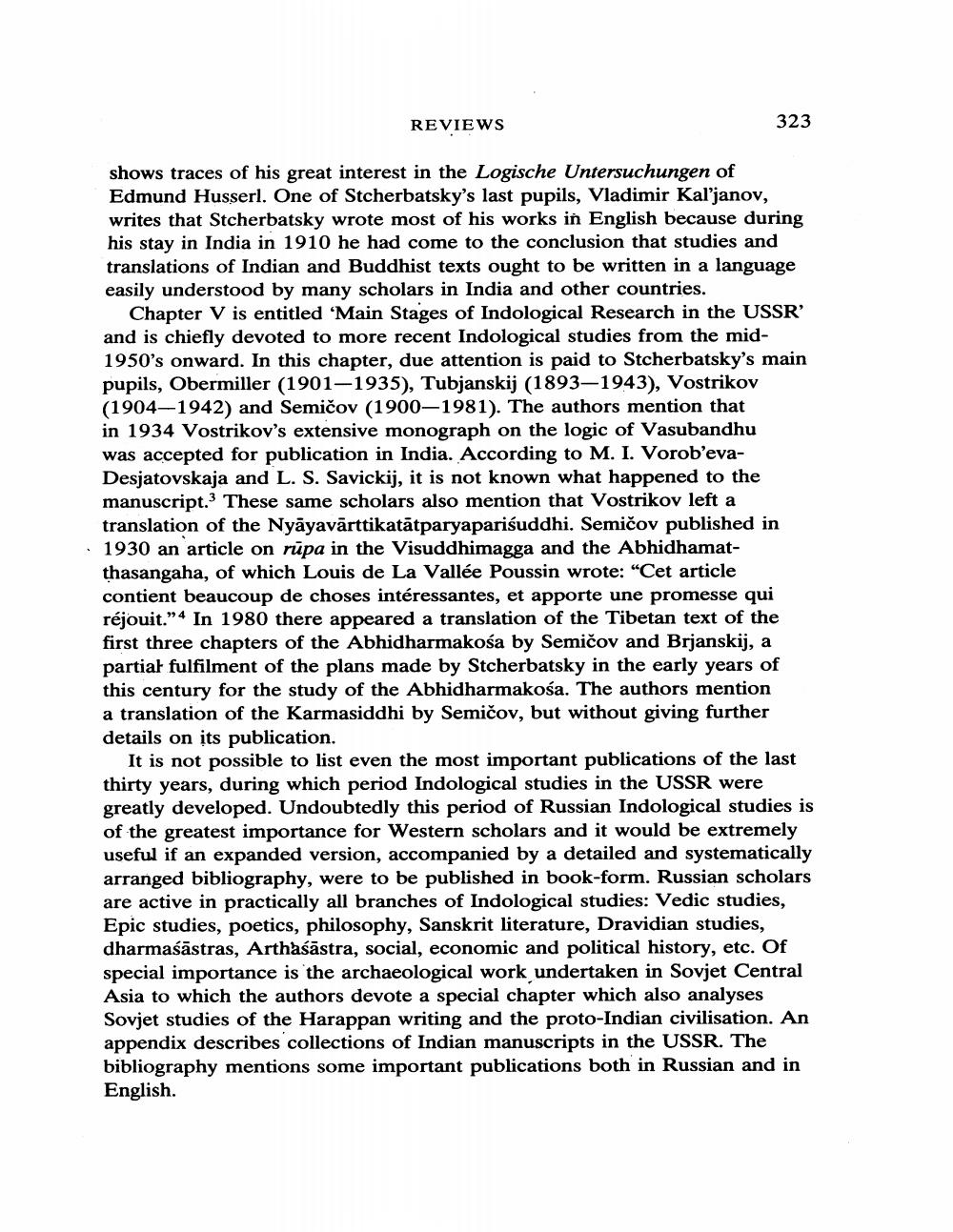Book Title: Book Reviews Author(s): J W De Jong Publisher: J W De Jong View full book textPage 3
________________ REVIEWS 323 shows traces of his great interest in the Logische Untersuchungen of Edmund Husserl. One of Stcherbatsky's last pupils, Vladimir Kal’janov, writes that Stcherbatsky wrote most of his works in English because during his stay in India in 1910 he had come to the conclusion that studies and translations of Indian and Buddhist texts ought to be written in a language easily understood by many scholars in India and other countries. Chapter V is entitled 'Main Stages of Indological Research in the USSR' and is chiefly devoted to more recent Indological studies from the mid1950's onward. In this chapter, due attention is paid to Stcherbatsky's main pupils, Obermiller (1901–1935), Tubjanskij (1893–1943), Vostrikov (1904–1942) and Semičov (1900–1981). The authors mention that in 1934 Vostrikov's extensive monograph on the logic of Vasubandhu was accepted for publication in India. According to M. I. Vorob'evaDesjatovskaja and L. S. Savickij, it is not known what happened to the manuscript. These same scholars also mention that Vostrikov left a translation of the Nyāyavārttikatātparyaparisuddhi. Semičov published in 1930 an article on rūpa in the Visuddhimagga and the Abhidhamatthasangaha, of which Louis de La Vallée Poussin wrote: "Cet article contient beaucoup de choses intéressantes, et apporte une promesse qui réjouit.” 4 In 1980 there appeared a translation of the Tibetan text of the first three chapters of the Abhidharmakośa by Semičov and Brjanskij, a partial fulfilment of the plans made by Stcherbatsky in the early years of this century for the study of the Abhidharmakosa. The authors mention a translation of the Karmasiddhi by Semičov, but without giving further details on its publication. It is not possible to list even the most important publications of the last thirty years, during which period Indological studies in the USSR were greatly developed. Undoubtedly this period of Russian Indological studies is of the greatest importance for Western scholars and it would be extremely useful if an expanded version, accompanied by a detailed and systematically arranged bibliography, were to be published in book-form. Russian scholars are active in practically all branches of Indological studies: Vedic studies, Epic studies, poetics, philosophy, Sanskrit literature, Dravidian studies, dharmaśāstras, Arthaśāstra, social, economic and political history, etc. Of special importance is the archaeological work undertaken in Sovjet Central Asia to which the authors devote a special chapter which also analyses Sovjet studies of the Harappan writing and the proto-Indian civilisation. An appendix describes collections of Indian manuscripts in the USSR. The bibliography mentions some important publications both in Russian and in English.Page Navigation
1 2 3 4
